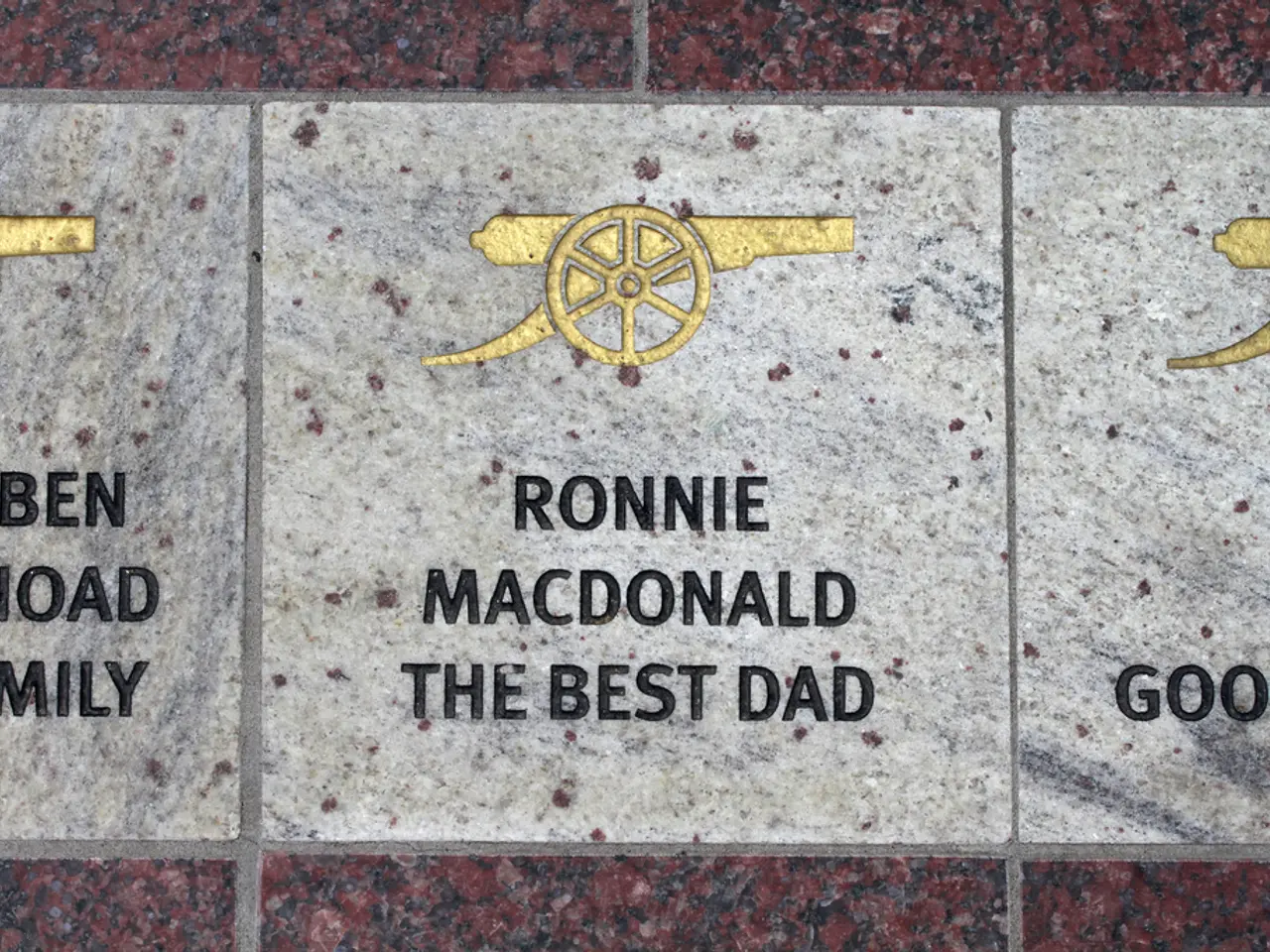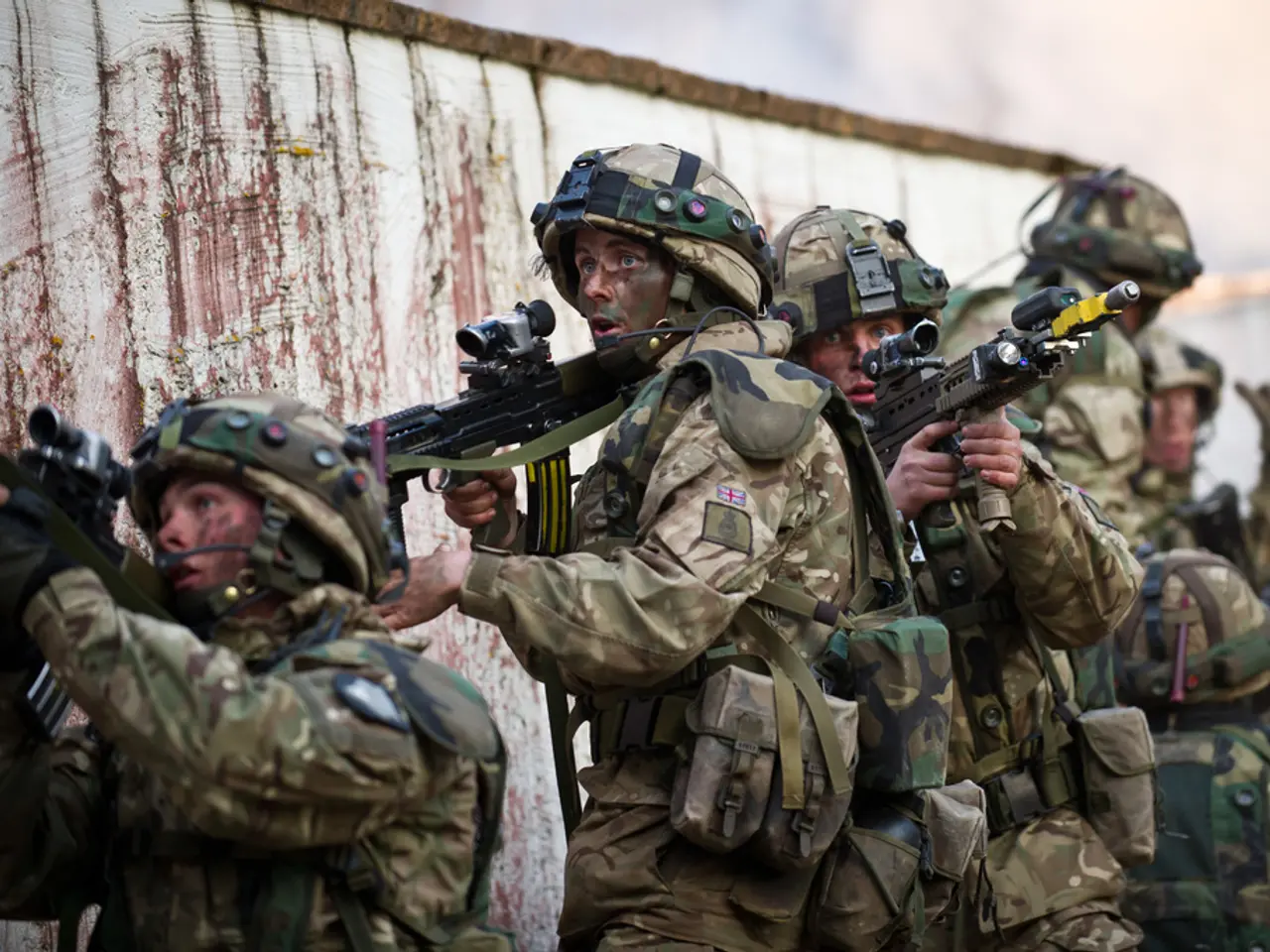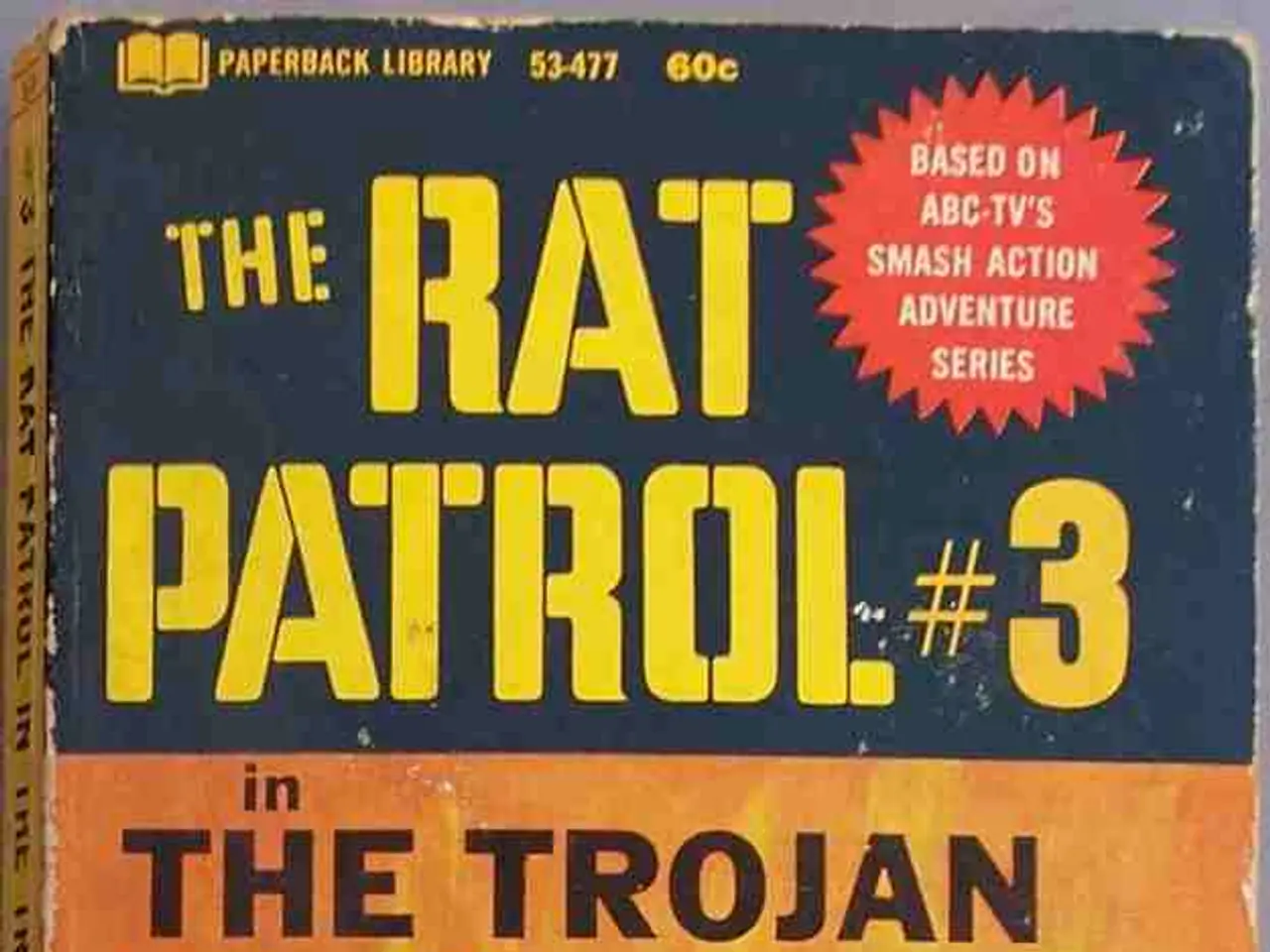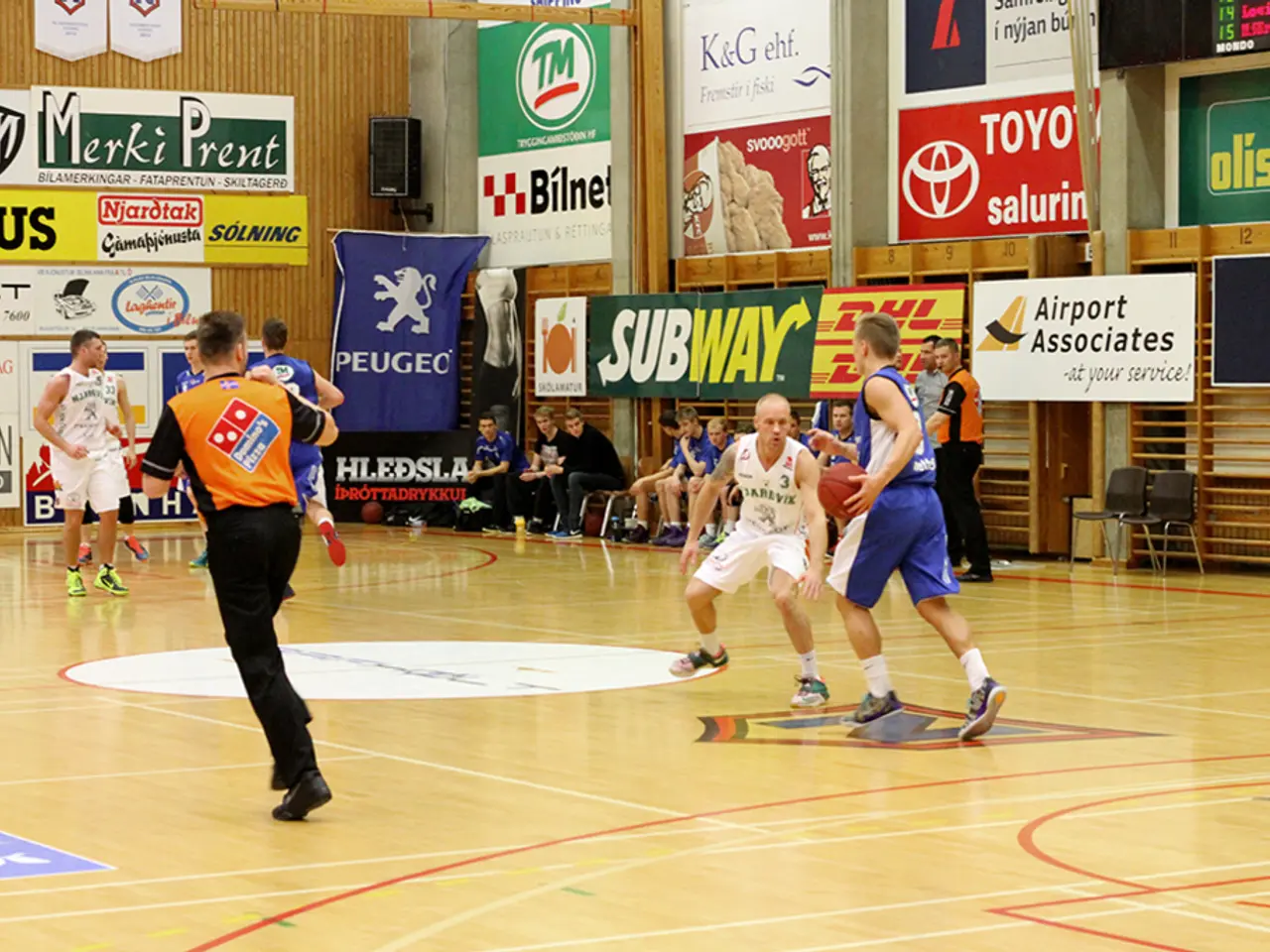Historical Gathering at the 13th European History Forum: Marking Milestones Amidst Challenging Times
In commemoration of the 80th anniversary of the end of World War II, scholars, historians, and cultural figures from across Europe gathered to discuss the complex legacy of 1945 and its impact on the region.
Korab Krasniqi presented the book project "Resistance - Women of Peace and Justice in the Former Yugoslavia and Albania," shedding light on the lives of eleven women who played a significant role in the resistance against the violence of the 1990s and continue to work for justice and reconciliation today.
Sergej Rumyantsev of the Centre for Independent Social Research in Berlin provided insights into the commemorative practices in Azerbaijan and Georgia, particularly the emphasis on localized remembrance and the ongoing debate over who or what is credited with securing victory.
Dominika Uczkiewicz explained that the Nuremberg Trials, a major milestone in the development of international law, were shaped by a predominantly Western perspective, while Yaroslav Hrytsak of the Ukrainian Catholic University in Lviv discussed how Ukraine commemorates the end of the Second World War, with the ongoing conflict taking precedence in Ukraine's collective memory.
Sabina Ferhadbegović focused on the prosecution of war crimes in socialist Yugoslavia, highlighting the selective nature of justice in the country, with crimes committed by Yugoslav partisans deliberately not prosecuted. Seda Grigoryan presented her documentary "Home Soon," a film about prisoners of war who were sent to Soviet Armenia after the war, telling the story of Anton Limmer and Konrad Lorenz, the animal researcher and later Nobel Prize winner.
The Copernico portal of Martin Luther University Halle-Wittenberg uses text contributions to illustrate the end of the Second World War, especially for a non-academic audience, with the aim of developing these texts not only "about the region" but also "with the region." Albrecht, the Executive Director of the Heinrich Boll Foundation, emphasized the continued relevance of debates surrounding the war's end, particularly in light of Russia's war of aggression against Ukraine.
Iryna Kashtalian of the Buchenwald Memorial in Weimar discussed the dual structure of the wartime resistance in Belarus, consisting of Soviet partisan units and independent underground groups. Andi Pinari from the University of Tirana discussed the intricate composition of resistance movements in Albania during the Second World War and the ongoing lack of consensus regarding the issue of collaboration.
Oksana Khomiak from the Kyiv-Mohyla Academy discussed the ongoing process of historical decolonisation in Ukraine, particularly in relation to Soviet narratives. Claudia Weber of the European University Viadrina emphasized the unique sense of historical urgency surrounding the 2025 anniversary due to the current war in Ukraine.
Vjeran Pavlaković of the University of Rijeka discussed two principal sites of memory in Croatia, Jasenovac and Bleiburg, and the competing narratives surrounding them. Jana Kocevska presented the publication series "Makedonka," an organ of the Anti-Fascist Women's Front (AFZ) that was published from 1944 to 1952, with female authors contributing their perspectives on the war, drawing on their roles as mothers, housewives, and workers.
The Heinrich Boll Foundation convened a European History Forum in 2025 to examine shifting memory discourses across Europe regarding the end of World War II. Ukraine moved its official day of remembrance from 9 May to 8 May to align with European memory culture and distance itself from Soviet-era symbolism.
Elma Hašimbegović, Director of the Historical Museum of Bosnia and Herzegovina, highlighted the significance of key battles that took place on Bosnian territory during the Second World War and the museum's role in remembrance work. The online platform dekoder.org focuses on disseminating expertise on Russia and Belarus, publishing texts and documentaries on marginalized perspectives of the Second World War, including women's perspectives.
The digital remembrance project "Light of the Fireflies" involves young people from Belgrade and Berlin visiting memorial sites of victims of Nazi persecution, with a film and an app allowing users to interactively visit the sites. Daria Reznyk and Anna Yatsenko presented the initiative "After Silence," which focuses on Ukrainian experiences during World War II and the current Russian war of aggression, including the fate of Ukrainian forced laborers.
1945 is remembered across Eastern and South-Eastern Europe primarily as the pivotal moment of the Allied victory in World War II and the beginning of Soviet influence and Communist domination in much of the region. This legacy is complex and often ambivalent, marked by both the liberation from Nazi occupation and the onset of decades under Soviet-imposed regimes.
Key points about 1945’s remembrance and its potential for European unity include:
- Division and the Start of the Cold War: The Yalta Conference of February 1945 epitomizes how Eastern Europe was effectively agreed to be in the Soviet Union’s sphere of influence, leading to the partition of Germany and the imposition of Communist governments across Eastern Europe. Many in the West viewed this as a betrayal, while in these countries, the year also symbolizes the beginning of foreign domination and a loss of sovereignty despite the defeat of fascism.
- Different Memories in Eastern Europe: In countries like Poland, Hungary, Czechoslovakia, and the Balkan states, 1945 is remembered as both liberation and the start of Soviet control, with the latter often casting a shadow over local remembrance. Some uprisings and protests occurred in the following years (e.g., 1953 East Germany, 1956 Hungary, 1968 Czechoslovakia), reflecting ongoing resistance to this legacy.
- European Unity Today: While 1945’s legacy initially led to division—separating Eastern and Western Europe into opposing Cold War blocs—the historical experience of the war and its aftermath has also been recognized as a foundation for the post-Cold War European integration project. The shared remembrance of the horrors of war and the desire to avoid such conflict has underpinned the European Union’s emphasis on peace and cooperation.
- Potential as a Catalyst: Given the ongoing challenges to European unity, including geopolitical tensions and the reassertion of national narratives, the memory of 1945 could indeed act as a catalyst for renewed commitment to European solidarity, especially if framed around reconciliation and mutual understanding of the complex histories involved. Acknowledging the pain and consequences of that year for all European peoples can promote dialogue and unity rather than division.
In summary, 1945 remains both a symbolic anniversary of liberation and loss across Eastern and South-Eastern Europe and, if leveraged thoughtfully, can serve as a poignant reminder of the necessity for European unity and cooperation today. The dual legacy of that year still shapes political and cultural identities but also holds the key to reinforcing a commitment to peace in Europe.
Transformation in the remembrance of 1945’s legacy can potentially engage Europeans towards renewed commitment to European solidarity, serving as a catalyst for reconciliation and mutual understanding. Despite the complex political and cultural identities shaped by the dual legacy of 1945, the historical experience of the war and its aftermath has been recognized as a foundation for Europe's post-Cold War integration, underscoring the importance of remembering this period in politics and general-news discourse.








